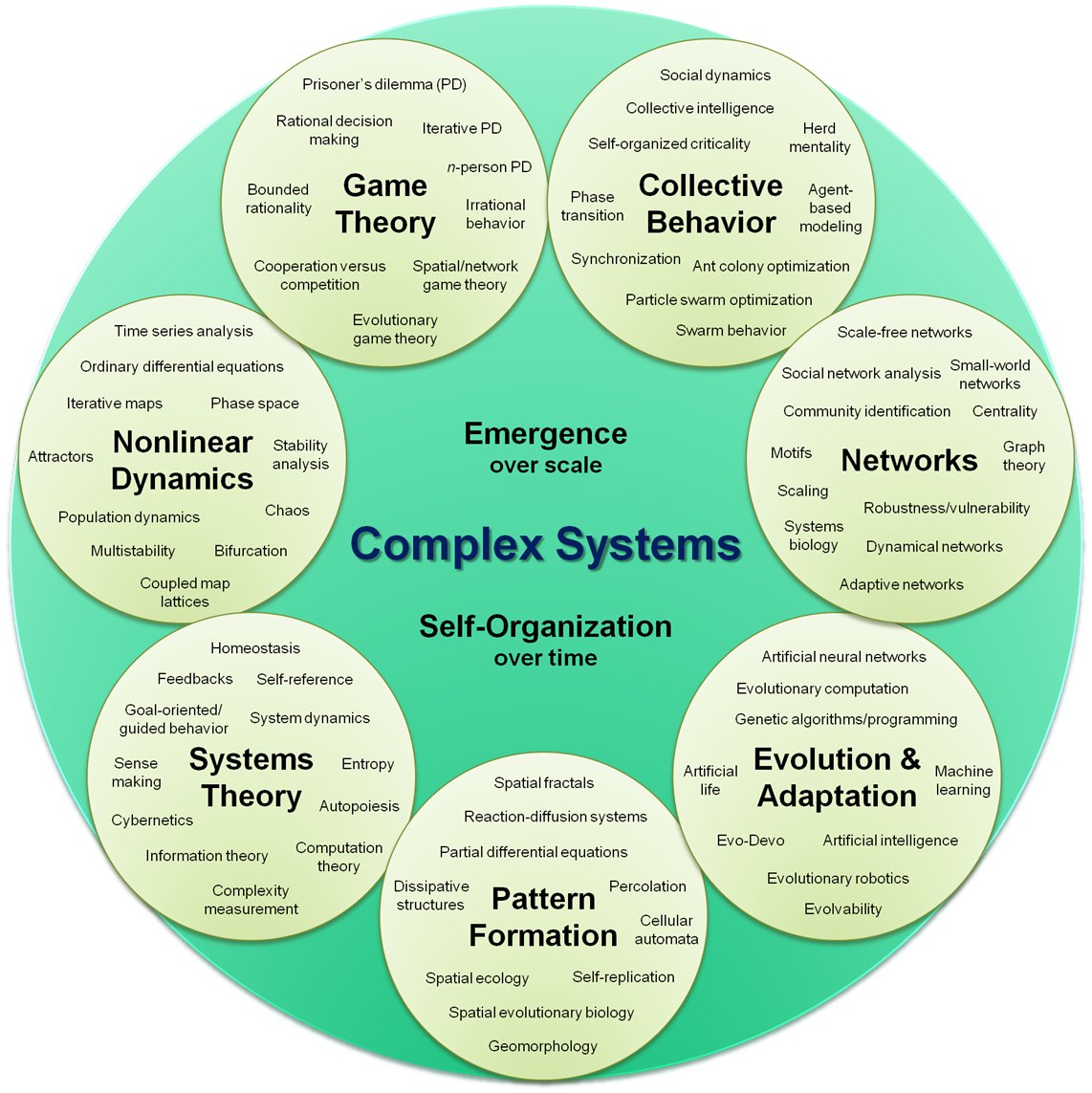In recent years, interdisciplinary sciences have garnered significant attention. One of the reasons for this is that the interdisciplinary approach generates new perspectives and concepts that are crucial from both theoretical and practical standpoints. Additionally, this approach enables the transfer of tools and methodologies from one discipline to another.
The investigation of complex systems has drawn the interest of researchers across different scientific and engineering fields. Defining a complex system is not straightforward, but generally, it refers to a system with numerous interconnected components, whose overall characteristics cannot be fully understood by studying each individual part. These emergent characteristics or behaviors are the main features of a complex system.
Complex systems can be found in various fields. Examples include social systems, biological systems such as living cells and organs, the brain, and ecosystems. Additionally, from an engineering perspective, examples of complex systems include transportation systems, urban and road communication networks, power transmission systems, telecommunication systems, and the Internet.
In terms of research methods and tools, the field of complex systems is an intersection of different areas of expertise. Some of the tools and methods used in this field include graph theory, nonlinear dynamics, data analysis methods, machine learning, and artificial intelligence. Additionally, information theory, game theory, and stochastic processes are effectively utilized in studying complex systems.
In the group of Statistical Physics and Complex Systems, researchers study topics such as game theory and evolutionary dynamics, nonlinear dynamics in complex networks, computational neuroscience, the formation of cooperation in human societies, and quantum machine learning




